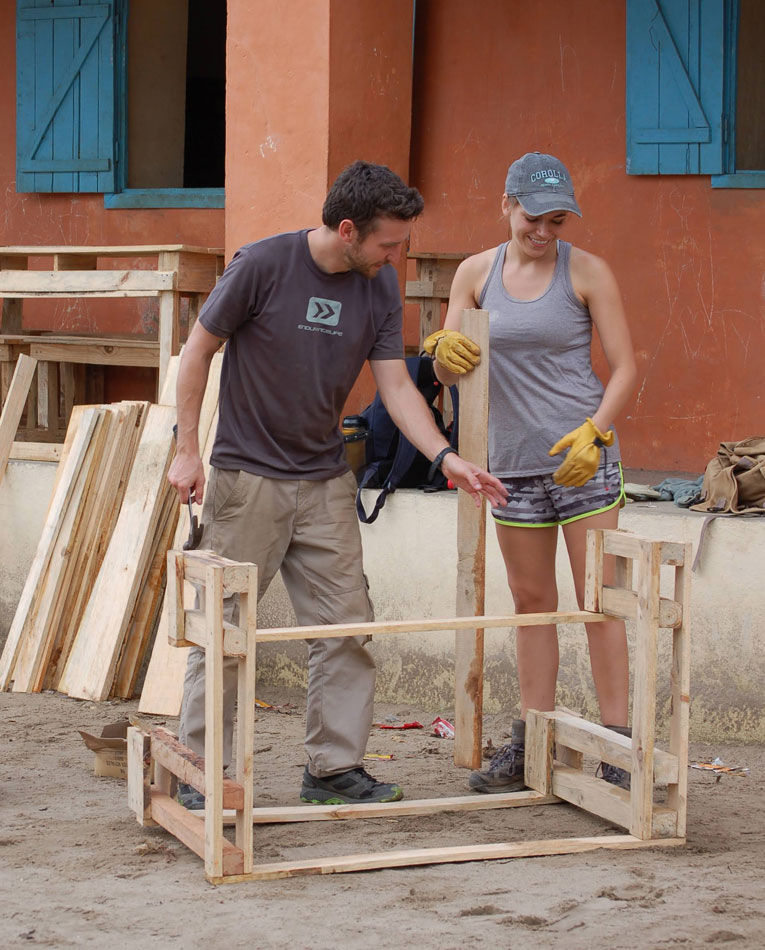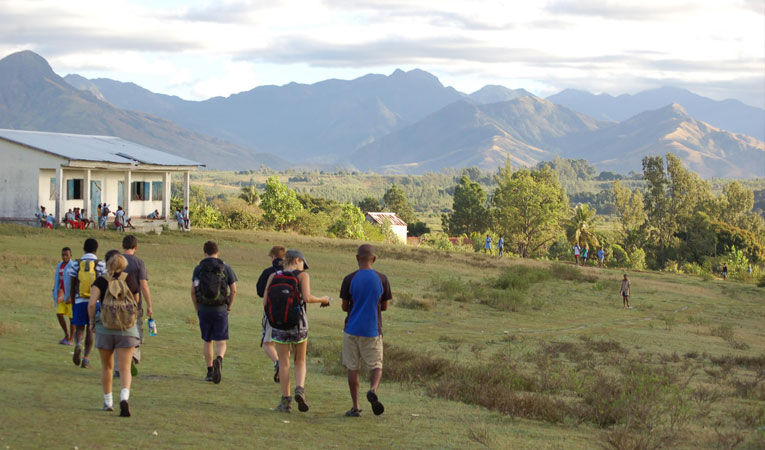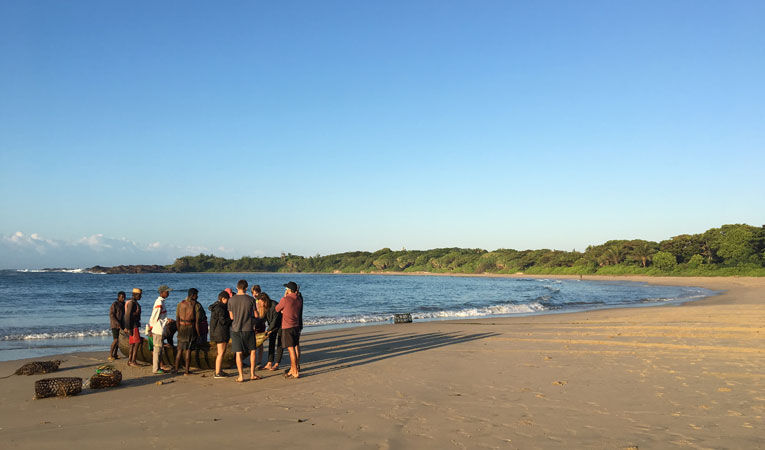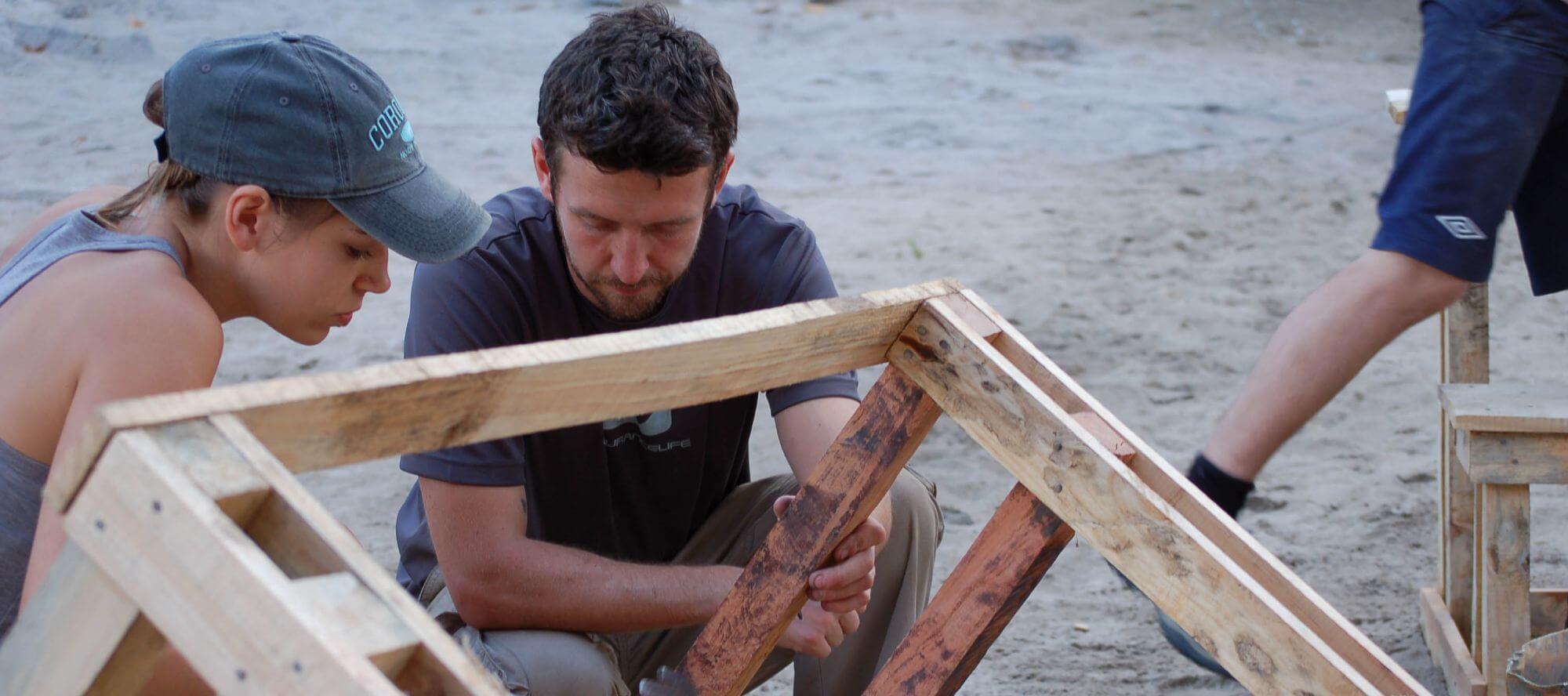Interview with Nick: Volunteer and Logistics Coordinator
What inspired you to join the team at SEED Madagascar?
After working for several years at a desk in London, I was looking for a role that was practical and would give me lots of hands-on experience in the field. But I also wanted to learn about the more professional side of the operation and management of an NGO. SEED Madagascar was just the place to get this experience.

It has a really broad range of projects across the region, extensive field operations, a well-established volunteer program, and is just the right size for me as an organization. It is big enough to have a proper organizational structure and professional management but is small enough that everyone knows what is happening across the organization and there is a lot of scope to develop your own role.
Can you tell us about your role as the Volunteer Coordination and Logistics Officer?
There are two sides to my role here. I manage all the logistics for our international staff, from their visa application to travel arrangements, housing, and general support whilst in the country. That part of my role is mainly office-based.
The other side of my role is coordinating our volunteer programs. For this I join our volunteers out in the field, whether at the school construction camps, our stunning conservation camp or out in local communities assisting with SEED’s project work. I work closely with our amazing local guides and the national staff back in the office to make sure our volunteers have the best experience we can give them.
How do you help support SEED volunteers?
As coordinator of our volunteer programs everything I do is to support our volunteers in one way or another. I will help answer any queries before they arrive (although this is mainly done by our excellent London team), make sure they have a comprehensive orientation when they arrive—so that they are prepared for the experience practically and culturally—and help them with any problems they might have when they’re here. As one of our volunteers put it “a combination of the international and local staff seem to solve any problem that arises (or will certainly try!)”.

What is your favourite part of your job?
It’s hard to just pick one! Doing this job, things can be fairly unpredictable—whether it is the weather, transport in the bush, or the volunteers themselves, you can never plan for everything and have to deal with things as they happen. That is some people’s worst nightmare, but I really enjoy working with my team of national staff and guides to work through unexpected events.
It is really satisfying to work away in the background so that the volunteers just see the smoothest experience possible. Another thing that I love about the job is meeting so many different people through the volunteering program—we have volunteers of all ages and from all different backgrounds—on my next scheme they range from 18 to 70 years old!
What makes SEED volunteering programs special?
SEED Madagascar has been working in this region for over 20 years, delivering a comprehensive range of sustainable development projects. Our volunteering programs have always been a very important part of what we do, but we are not a volunteering organization. This means that you will always be helping with real development projects, working with our specialists to make a real difference to the local communities and environment.
How has your experience of volunteering in Nepal influenced the work you do today?
In Nepal, I was volunteering with a Nepali NGO, staffed almost entirely by Nepalis. International staff and volunteers provided administrative assistance and some expert input, for example with specialist first aid courses for guides, but we were very much supporting the work of the local staff. That experience definitely made me realize that I wanted to work in an organization which was really well integrated into the local community and worked closely with the local population, which is exactly what SEED does.
The natural environments of Nepal and Madagascar couldn’t be much more different but they have both definitely shown me that this sector lets you live in some amazing places!

Why do you think it is important to travel and experience new cultures?
I think that people can learn a huge amount from traveling and experiencing new cultures. There is so much to be said for putting yourself outside your comfort zone and trying new things. It can be an amazing experience to do something new, unsure of how you are going to manage, and discovering that you can not only cope, but thrive in those situations. This is something I have experienced myself and now really enjoy seeing with our volunteers.
On another level, as I have traveled and experienced new cultures, I am always struck by how much people have in common, rather than how different they are. I think that the more people see that, the more they can empathize with other countries and cultures, which can only be a good thing.
